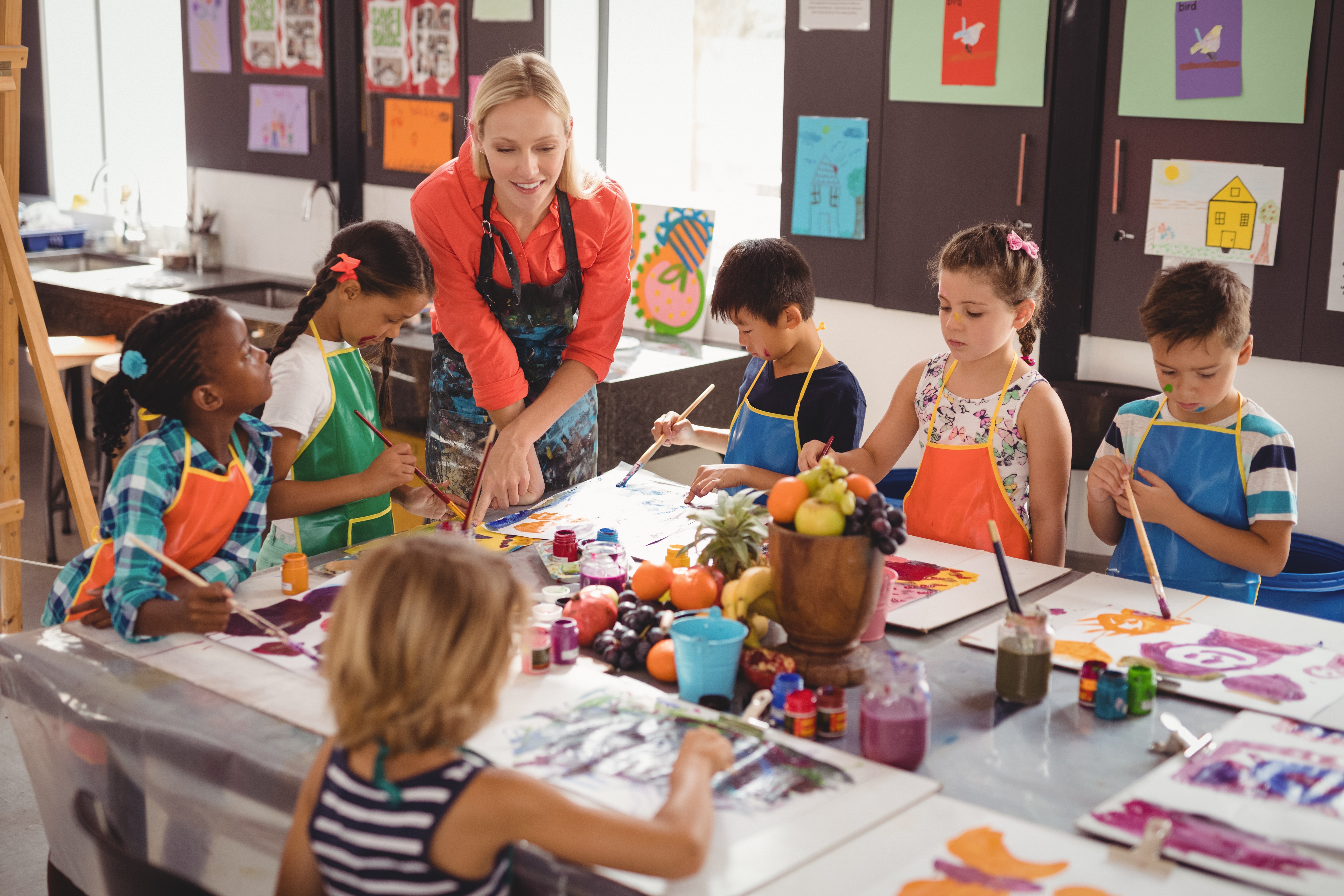
In fact, the research shows that children in play-based preschools do better both socially and academically, in kindergarten and in the later grades, than kids in preschools that focus on academics. That implies that kids who start kindergarten not knowing any of these things will probably learn them quickly. So the idea of kindergarten-readiness seems to me to be based on some problematic assumptions, at best. To me, kindergarten-readiness means the child is ready to listen to the teacher, and ready to work things out with other children.
But since the US kindergarten curriculum assumes children entering kindergarten will know certain things, many parents get anxious about getting their child kindergarten-ready. Luckily, the things your child is expected to know are all things that he or she can learn easily in the course of daily life ("Do you want to count out how many forks we need for dinner?")
So why not spend time with your child interacting about numbers, the alphabet, colors, shapes and coins? Remember, have fun with this. Please don't test him, or resort to flash cards. If you quiz a child, sooner or later you will hit the extent of the child's knowledge and the child will feel inadequate or "dumb." And children always learn faster in context, when they see things in action -- The letter T goes with that truck! Making learning fun is what will help your child be ready to learn when they get to kindergarten.
What Kindergarteners Need to Know
- Know basic colors: red, orange, yellow, green, blue, and purple.
- Know basic shapes: circle, diamond, rectangle, triangle, oval, and square.
- Know basic coins: penny, nickel, and dime.
- Be able to count objects to 10.
- Know the numbers to 10 and recognize the first ten numbers out of sequence such as: 2, 5, 9, 8, 1, 3, 4, etc.
- Recognize the uppercase alphabet and be able to name the letters out of sequence, such as: B, D, X, K, J, M, O, etc.
This list is from Stacey Kannenberg, author of Let's Get Ready for Kindergarten! But maybe even more important is the homework that parents should give themselves every day once school begins:
Homework for Parents
- Stop, Drop and Listen every day when you're reunited with your child.
- Unload the backpack/homework folder with your kids daily.
- Read with your kids every night for 15 minutes.
- Play repetitive games with your kids.
- Ask open ended questions to help your kids communicate.
Most of all, engage with what your child is learning, but as their partner, not their teacher. When parents care about what happens to their child in school, the child engages with school more -- and enjoys it more!




